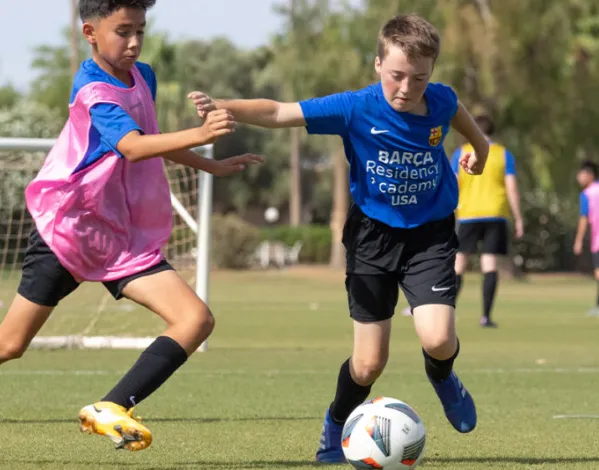When it comes to youth soccer camps, parents often have mixed feelings. As a soccer dad, I’ve seen both sides of the experience—camps that have made a significant impact on my children’s development and others that seemed more interested in profits than in truly advancing players’ skills.
In this post, I’ll share what makes a soccer camp truly beneficial, offering tips for parents who are navigating the world of youth soccer camps.
Understanding the Cost of Soccer Camps
Let’s begin by acknowledging that soccer camps do come with a price tag. Coaches need to be paid, facilities must be rented, and equipment is essential. But does that automatically mean the camp is just a money-making scheme? Absolutely not!
Money Grab vs. Genuine Development
To determine whether a camp is genuinely focused on player growth or just out to make money, consider these factors:
Who’s coaching? Are they experienced professionals or just college students filling in for the summer?
What do other parents say? Ask for reviews from people who’ve attended the camp before.
Is there a clear focus on skill development? Does the camp emphasize teaching techniques or simply providing a place for kids to play?
What happens when it rains? Does the camp have backup plans for bad weather, or will the kids be left with nothing to do?
The key is to choose a camp that prioritizes skill-building, keeps kids engaged, and makes the most of their time on the field.
The Value of More Touches on the Ball
It’s no secret that improving in soccer requires consistent practice and repetition. Every touch on the ball—whether it’s a pass, dribble, or shot—helps to strengthen a player’s technique, build confidence, and sharpen their instincts.
Soccer camps are great places for players to get those extra touches in. With structured training sessions and skill-building exercises, camps provide a focused environment where young athletes can work on their game.
How to Choose the Right Soccer Camp
To choose the right camp, it’s important to do your research. Instead of relying on hearsay or just looking at the camp’s reputation, take the time to talk to people who have firsthand experience with it. Here’s how you can gather helpful insights:
Talk to coaches and other parents who’ve attended the camp. What did they like? What didn’t they like? Did their children benefit from the training offered?
Look for a camp that fits your child’s needs based on their current skill level and goals.
Identifying Quality Camps
A good soccer camp offers several key features, including:
Experienced coaches who are focused on player development.
Training sessions that target technical skills and tactical understanding.
Exposure to different playing styles and strategies.
These elements make a camp worthwhile, providing valuable experiences that can help take your child’s game to the next level.
Avoiding Unrealistic Expectations
Not all soccer camps are created equal. Some camps make big promises, like the chance to be scouted by professional teams or earn a spot on a prestigious academy. While these opportunities do exist, they are rare, and it’s essential to approach such claims with skepticism.
When considering a camp, take the time to evaluate the actual value it offers, rather than buying into unrealistic expectations.
Conclusion
The next time you’re looking at a soccer camp for your child—whether it’s one known for its prestige or one that’s more focused on profit—remember that every touch on the ball is a step forward in your child’s development. In a sport where progress is made in small, steady increments, every opportunity to train, learn, and enjoy the game matters.
Youth soccer is about growth, fun, and creating a love for the game. So choose the camp that best aligns with your child’s development and passion for soccer.














